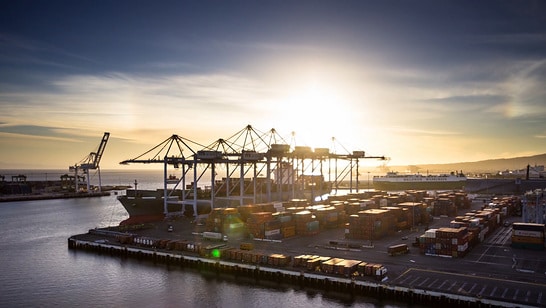7 global Megatrends that reshape the world
This article features
Megatrends are far-reaching, global, and system-changing processes that gradually transform the world - both today and in the future - typically over the course of several decades. They influence politics, the economy, and the daily lives of people everywhere.
They manifest, for example, in changing consumer behavior, shifting values, or emerging technologies. As a multinational technology company with locations around the world, megatrends are a core element of our corporate strategy. In this way, we actively contribute to addressing the challenges associated with these megatrends.

“At Wilo, we view megatrends as global processes of change that enable us to transform our world and make life easier for people.”
Which 7 megatrends are changing the world?
As part of our strategic long-term planning, we have identified seven megatrends and the key factor of digital transformation that influence both the current and future business of the Wilo Group.
Digitalisation and AI

Digitalisation and AI enable effective problem-solving.
The digital transformation is driven by the technological change heralded by new technologies. Digitalisation is fostering innovation and transformation by providing added value for customers through digital connectivity. Only those who are willing to question the status quo are set to succeed in the long term. Digitalisation should never be an end in itself – instead, it should always be used systematically to achieve purposeful results. The same applies to Artificial Intelligence as a technological disruptor: only by embracing AI, engaging with it, and recognising its opportunities can we unlock its true potential for ourselves.
Human Centricity

For a future that serves people.
In the digital and AI era, the need for personal contact is growing. Despite technological progress, values such as empathy, closeness, and authenticity are increasingly coming to the fore — a counterbalance to the ongoing digitalisation and automation of our daily lives. At Wilo, our priority is not products, systems, or solutions, but the people for whom we develop them — and the people who develop them. Whether customers, employees, partners, or society as a whole: our daily actions are people-centred. Only those who put people at the heart of what they do can achieve sustainable impact.
Globalisation 2.0

Globalization requires intelligent solutions.
For decades, globalisation — the interconnection and coming together of markets across all borders — has shaped global economic development. It has led to tremendous growth and a broad increase in prosperity. The world is going through a period of transition. Old alliances are crumbling; multinational collaborations have to readjust — we are witnessing Globalisation 2.0.
Urbanisation

Increasingly larger cities, increasingly greater demand for water and energy.
Today, around eight billion people live on our planet, and the world’s population continues to grow every day. Current forecasts predict that over ten billion people will be living on our planet by 2050. At the same time, urban areas are growing at pace: Around half the global population lives in cities, and more and more people are moving from rural to metropolitan areas. In addition to the cities and metropolitan regions that already exist today and are continuously growing, more and more new, ultra-modern planned cities are being developed.
Energy Revolution

Energy scarcity demands highly efficient water transport.
Urbanisation, the rapid growth of cities and the ongoing dynamic economic development in many parts of the world, especially in emerging economies, are triggering a constantly increasing demand for energy. This demand and a dependency on fossil fuels has caused a bottleneck in the supply of energy resources to the economy. Alongside traditional energy sources such as oil and gas, renewable energies like solar, wind, and hydropower are becoming increasingly important. Their expansion reduces environmental impact and makes the energy supply more resilient — a crucial step for the future of our cities and economies.
Water Responsibility

According to the UN World Water Development Report, around 5 billion people will be threatened by water scarcity by 2050.
The uninterrupted supply of water for drinking, for agriculture or for industry has always been one of humanity’s great challenges. More than two billion people currently live without adequate sanitation — and water scarcity is increasing, causing this vital resource to become increasingly precious and harder to obtain. Responsible and therefore sustainable water management is not only a case of extracting and supplying drinking water. The disposal, treatment and processing of sewage is also increasingly important.
Climate Change

Intensification of climate change due to CO2 emissions.
Global warming, water shortages and extreme weather events are challenges that require answers. Global CO₂ emissions continue to rise – adversely affecting global temperatures with them. The different calculation models developed by various climate researchers paint a frightening picture. One thing is clear: We must act now if we want to preserve our planet for future generations.











